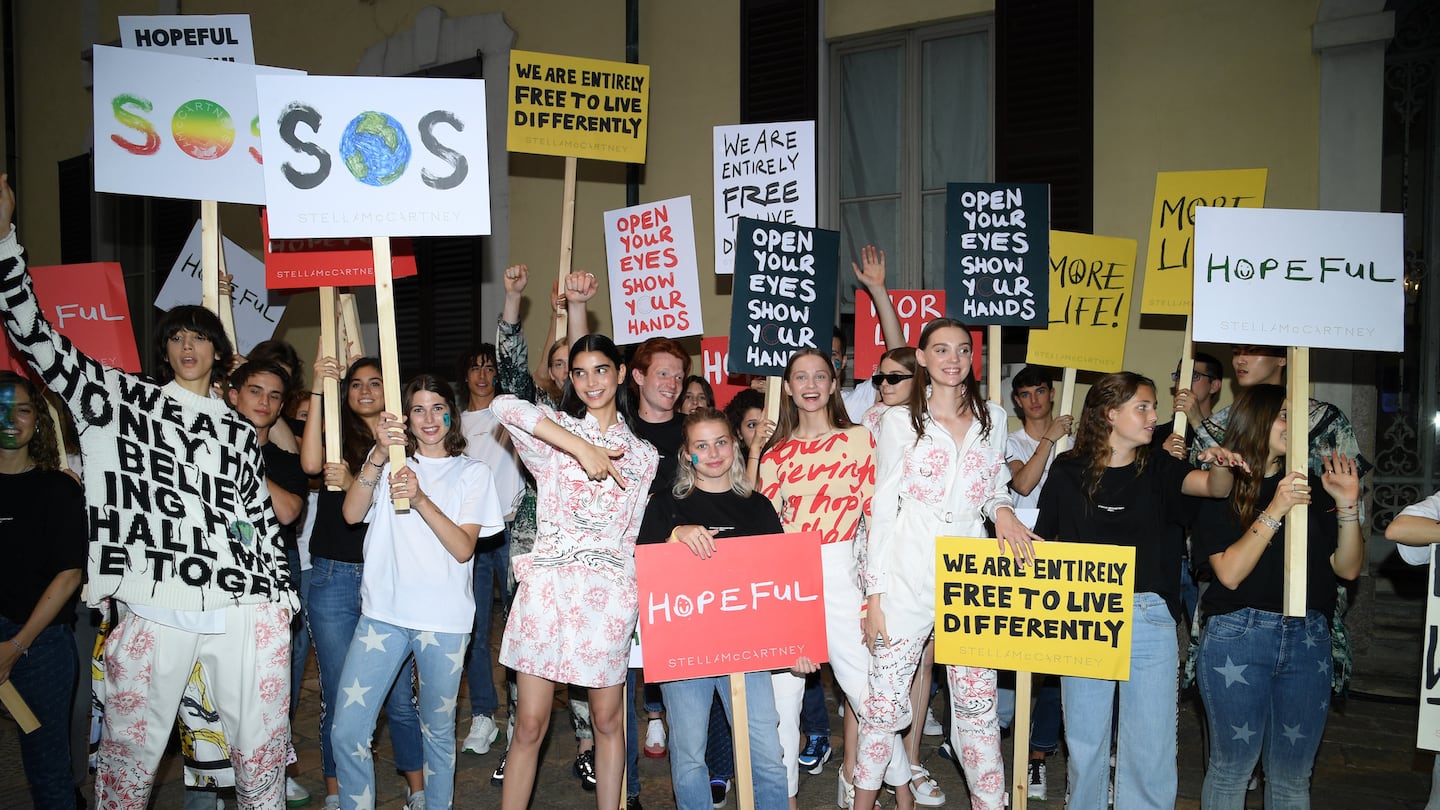
The Business of Fashion
Agenda-setting intelligence, analysis and advice for the global fashion community.

Agenda-setting intelligence, analysis and advice for the global fashion community.

Big Fashion brands’ willingness to get behind sustainability regulation is about to be tested in one of the industry’s biggest markets.
On Friday a coalition of non-profits, companies and activists announced the Fashion Act, an ambitious piece of legislation that could put New York at the forefront of efforts to hold fashion accountable for its environmental impact and labour violations in its supply chains. The bill has been sponsored by New York State Senator Alessandra Biaggi and Assemblymember Anna Kelles, who have introduced it for consideration by the State Assembly.
Stella McCartney, who has positioned herself as a champion of better regulation for the fashion industry, has already thrown her support behind the motion. Its launch was planned for her brand’s SoHo store in New York, but the rapid spread of the Covid-19 Omicron variant pushed it online.
“There needs to be policies set in place to police our industry,” McCartney told BoF last summer, a week after delivering the same message to a group of the world’s most powerful leaders at the G7 summit in Cornwall, England. “Certainly the industry has fallen short … left to its own devices,” she said.
ADVERTISEMENT
Companies that wish to do the right thing at this moment are being put at a competitive disadvantage.
The Fashion Act aims to bring much greater accountability to the sector. If passed, the current proposal would tighten supply chain due diligence and environmental disclosure requirements for any brand doing business in New York with global revenue of more than $100 million. Its proponents say the legislation would create a more level playing field for brands already investing in operating more responsibly.
“Companies that wish to do the right thing at this moment are being put at a competitive disadvantage,” said Maxine Bédat, director of non-profit New Standard Institute, which spearheaded The Fashion Act. “We’re hopeful and expect the industry gets behind this ... it will make clear who is all talk and who’s ready for action.”
The regulatory push builds on efforts already underway in Europe and the US, signalling mounting scrutiny on an industry that has resisted oversight for decades. While high-profile labour scandals and growing consumer interest in sustainable products have encouraged big brands to confront their negative impact in recent years, the response has largely been limited to high-profile, but non-binding commitments to do better.
The result has been slow progress, despite growing urgency to address fashion’s contribution to climate change (studies peg the industry’s emissions at between two and 10 percent of the global total) and clean up opaque supply chains that enable unethical business practices. Increasingly, environmental and labour advocates within the industry have pointed to tougher regulatory requirements as an essential lever to drive change.
What’s in the Fashion Act?
The proposed bill would bring much greater accountability to brands with global revenue of more than $100 million operating in New York. It calls for:
Governments in Europe and the US are discussing regulations and policy proposals that could help steer the sector in a more sustainable direction.
The ethical fashion pioneer and LVMH sustainability advisor is trying to change one of the world’s most polluting industries from the inside.
This week, an unlikely alliance of fashion giants including Chanel, Hermès, Inditex and H&M agreed to a new set of climate commitments, but the industry is unlikely to overcome its sustainability challenge through self-policing alone.

Sarah Kent is Chief Sustainability Correspondent at The Business of Fashion. She is based in London and drives BoF's coverage of critical environmental and labour issues.
Overconsumption and fast fashion have become easy targets for brands flexing their climate-friendly attributes. Consumers may agree with the message — but take issue with a self-righteous tone.
Traces of cotton from Xinjiang were found in nearly a fifth of samples from American and global retailers, highlighting the challenges of complying with a US law aimed at blocking imports that could be linked to forced labour in China.
The fashion industry continues to advance voluntary and unlikely solutions to its plastic problem. Only higher prices will flip the script, writes Kenneth P. Pucker.
The outerwear company is set to start selling wetsuits made in part by harvesting materials from old ones.